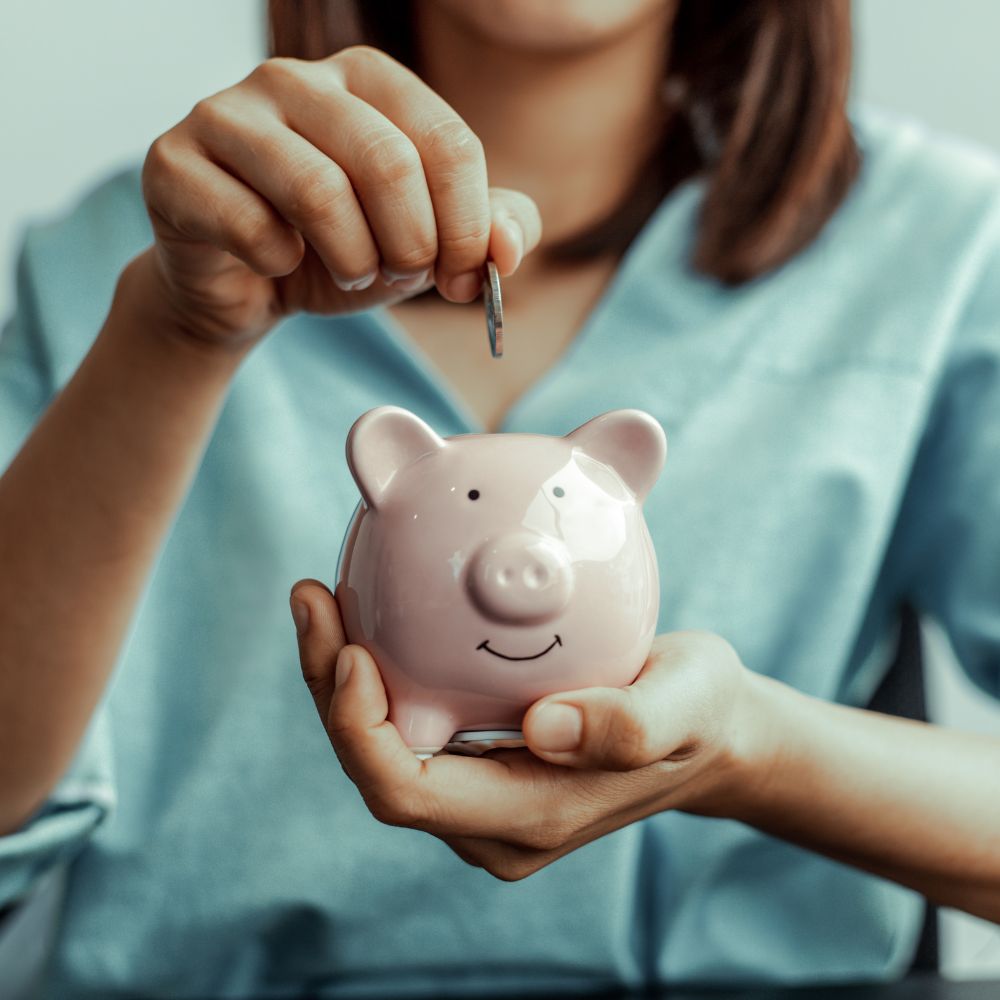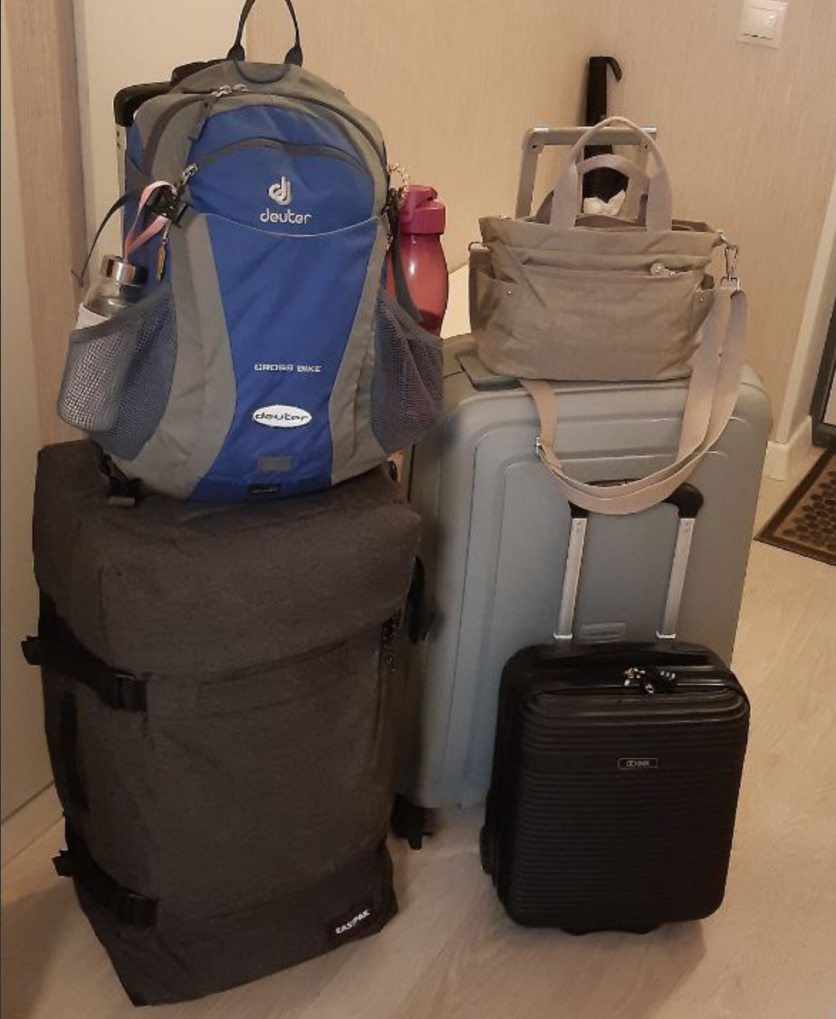Giving Advice:
Becoming A Nomad
- December 8, 2024
Today, it happened – for the first time, actually – I got asked for advice on how to start living as a digital nomad. And it took me a second to reply. Why? Because I am not an expert on how to become a digital nomad. I can only tell what I did, how it worked out for me, what I would not try again, and so on. But I don’t feel like telling others how they should do it… Nevertheless, I got asked, and here is how I did it and how I would do it again.
Britta’s 3-step plan to becoming a digital nomad:
Find a way to make money.
Say good-bye to your stuff.
Start travelling.
Yes, sure – there are minor additional things you should consider – but since they can be done in very little time, I don’t consider them an extra step (but I will mention them).
1. Find a way to make money.
As you may or may not know, I am a communication coach for German as a foreign language – or in more generic but understandable words: I teach German – online. I never studied “Germanistik” or “Lehramt” to become a German teacher, but I have taught and tutored all my adult life. I tutored mathematics and economic subjects while being at university. I instructed young trainees and became a qualified vocational trainer and then a job coach, helping people with the application process in Germany – just to name a few. In 2015/2016, I had been very actively learning Spanish and came across an online platform where you could hire a native speaker privately to talk to you and help you learn their native language. My Spanish tutor was amazing, I learnt Spanish – and then thought: I could do that, too. I applied, got accepted, and waited two weeks for my first student. I remember being so nervous – but I managed and got booked again. More followed, and even through I did not make a lot of money yet, it was enough to move on to step 2.

Honourable Mention:
I also had savings for rainy days
Keep that in mind.
When it comes to you, you have to find out what you can do. Yes, you can ask for ideas and advice online in forums or social media. But then you have to try … there is no other way. And one more piece of advice: Don’t rely on ideas and tips of others too much – they are not you. Sit down with a piece of paper and a pencil – and write down EVERYTHING you know and can do. Don’t get distracted and give yourself enough time. You might be surprised how much is on this list. Then find out how you could use these skills to generate income while travelling. Be creative! And active! There is no way of knowing if an idea works for you without trying. Give yourself a couple of months to see the first results before you rely on the newfound income.
2. Say good-bye to your stuff.
Since I had spent time abroad before and had planned other activities like that, I already had a storage place where some of my stuff was kept. However, the property was sold, and I had to find a new place. I used this as an opportunity to sort through my stuff – which you will need to do as well. How much you keep and how much you let go: It is up to you! Yes, there are those who don’t keep anything – but there are also plenty of nomads who do. Before you start sorting, you might want to read (a summery) of Marie Kondo’s book, The Life-changing Magic of Tidying Up. I also found watching minimalist videos helpful and inspiring (example: 10 Minimalist Rules That Changed My Life / https://www.youtube.com/watch?v=G9qNRtuJ5II). Just don’t get stuck there – start sorting and giving away as soon as possible and keep going. Although I did not stick to the method 100 %, I sorted easiest to hardest like Marie Kondo: I started with clothing, then household items, then books, then memory items – and overall got rid of two-thirds of my stuff. The rest went into the new storage place. And if you ask me where to best store your stuff, that depends on your circumstances. But I do find a professional storage facility more convenient in the long run – rather than being dependent on family members or friends.
Honourable Mention: Something you have to keep or even buy extra: health insurance.
3. Start travelling.
Set a date, terminate a lot (work, apartment, insurance…), book the first leg of your journey, and get on the road. You can always come back, but you will never be a digital nomad if you do not start!
I had planned to travel around Europe in my car – which broke down three times in the first month, was brought back “home”, and ever since lives with a good friend who keeps it safe for when I need it when visiting Germany. The next year or so, I travelled by plane – then preferred trains. And now I’m considering buying another car to maybe try the road thing again.
Challenges
You will find your personal challenges. To be honest, one of mine is keeping the luggage under 50 kg. I love packing for “just in case” – mostly technical equipment, books (for reading, learning, and teaching) – not so much clothing. But that is me! This might be easy for you. Another challenge I face is decision fatigue – having to decide where to go next, where to stay, and how to get there – it tires me out, and I am always happiest when I can travel very, very slowly. But again, that is me! The thing you have to keep in mind: You will find your challenges, and how you react to them will show you if you are made for living on the road. Being a nomad is not for everyone – and that is fine. There is no shame in going home when being a nomad is not for you or when you are done traveling. Keep that in mind, too.

Now it is up to you to start your own digital nomad journey!
Author
Britta
I have been an au pair, a tourist, an explorer, and a nomad – looking for nice places to visit and the one place I want to stay forever.